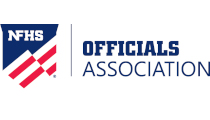Identity Theft – A Potential Problem for Sports Officials
By Ken Devoe on April 12, 2017 officials PrintFor years, high school sports officials have routinely put some of their important, confidential, personal information at risk – and not by choice. It happens at a game site where the official is required to fill out a form – including name, address, phone number and, most critically, Social Security Number – to be paid for the game. That form might sit on a scorer’s table or in some other unsecured area where anyone might see the information contained on it, putting that information at risk of being stolen.
While many schools have taken measures to secure officials’ information, such practices vary considerably in effectiveness. More troublesome are the schools that still have taken no additional security measures.
Should high school sports officials be concerned?
Given the increasing occurrences of identity theft, the answer is a resounding “Yes.” For perspective, consider the following high profile incidents that occurred in recent years:
- Yahoo – more than a billion accounts were affected in the largest cyber-attack in history. [Source: CNBC, 12/15/2016]
- Anthem – a database of the country’s second biggest health insurer was hacked, compromising personal information for about 80 million customers. [Source: Wall Street Journal, “Health Insurer Anthem Hit by Hackers,” 2/4/2015]
- Home Depot payment systems were breached, impacting roughly 56 million cards. [Source: Market Watch, Home Depot’s data breach is worse than Target’s, so where’s the outrage?” 9/25/2014]
These companies had security systems and protocols far more robust than any high school. Yet, they were breached. So, it stands to reason that high schools and sports officials might be vulnerable.
What some schools are doing to secure officials’ information
We spoke with a couple of high school athletic directors in Connecticut about their schools’ approach to safeguarding officials’ information. Though admittedly a small sample, their ideas and practices are worth noting.
Dan Scavone is the former athletic director at Berlin (Connecticut) High School and past president of the Connecticut Association of Athletic Directors. He is also a veteran high school basketball official, so he has personal experience on both sides of the equation. Scavone believes every school should have an information security protocol in place and follow it consistently.
“At Berlin, we were very particular about who handles the officials’ paperwork,” he said. “At the game site, either I or the site director, or our head coach would keep the forms officials fill out secured. We didn’t leave the forms on a scorer’s table for any length of time, and we did not let the paperwork pass through several hands.”
An official only had to fill out a W9 form and provide their Social Security Number the first time that official worked at the school. Thereafter, the official’s information is kept in the school’s central office system.
Greg Ferry is the athletic director at Southington (Connecticut) High School. His protocol is slightly different from what is done at Berlin, but the concern for protecting officials’ information is equally strong.
“I have each official sign in at the event they are working to confirm that they were there. The form asks them to provide their name, address and phone number, but not their Social Security Number, because too many people could see that form,” Ferry said. “After the game, our secretary emails the officials thanking them for coming to Southington and asking them to fill out a W9 and send it back to us.”
Ferry said that it can be a challenge getting officials to follow up with the W9 in a timely manner, but that his business office is very good about tracking that information.
Protecting your identity is your responsibility. You may have individual discussions with schools that pay you or you may have representatives of your association work with the member schools. Creating a dialogue with the schools about your identify concerns as an official will lead to a solution acceptable to both parties.
Ken Devoe
Ken Devoe is a freelance writer specializing in corporate communications. He has officiated high school basketball for the last 16 years in the New Haven, CT area and is past president of IAABO Board 10.
Most Recent Articles
- nfhs news NFHS Celebrates National Girls and Women in Sports Day
- nfhs news NFHS Learning Center Delivers 25 Millionth Course
- Track & Field/Cross Country article Effective Communication with Athletes and Coaches
- nfhs news Player Equipment Changes Highlight 2025 High School Football Rules Revisions
- Player Equipment Changes Highlight 2025 High School Football Rules Revisions






